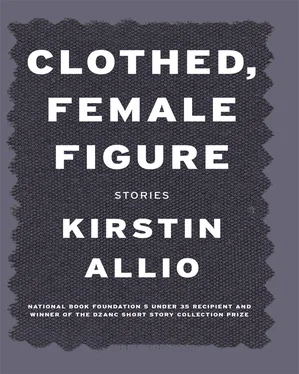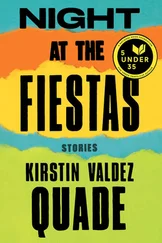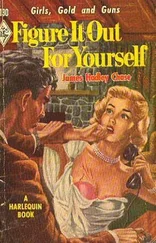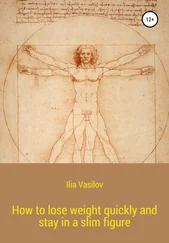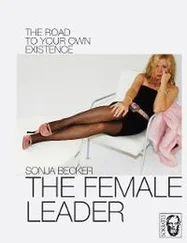Kirstin Allio - Clothed, Female Figure - Stories
Здесь есть возможность читать онлайн «Kirstin Allio - Clothed, Female Figure - Stories» весь текст электронной книги совершенно бесплатно (целиком полную версию без сокращений). В некоторых случаях можно слушать аудио, скачать через торрент в формате fb2 и присутствует краткое содержание. Год выпуска: 2016, Издательство: Dzanc Books, Жанр: Современная проза, на английском языке. Описание произведения, (предисловие) а так же отзывы посетителей доступны на портале библиотеки ЛибКат.
- Название:Clothed, Female Figure: Stories
- Автор:
- Издательство:Dzanc Books
- Жанр:
- Год:2016
- ISBN:нет данных
- Рейтинг книги:5 / 5. Голосов: 1
-
Избранное:Добавить в избранное
- Отзывы:
-
Ваша оценка:
- 100
- 1
- 2
- 3
- 4
- 5
Clothed, Female Figure: Stories: краткое содержание, описание и аннотация
Предлагаем к чтению аннотацию, описание, краткое содержание или предисловие (зависит от того, что написал сам автор книги «Clothed, Female Figure: Stories»). Если вы не нашли необходимую информацию о книге — напишите в комментариях, мы постараемся отыскать её.
Clothed, Female Figure: Stories — читать онлайн бесплатно полную книгу (весь текст) целиком
Ниже представлен текст книги, разбитый по страницам. Система сохранения места последней прочитанной страницы, позволяет с удобством читать онлайн бесплатно книгу «Clothed, Female Figure: Stories», без необходимости каждый раз заново искать на чём Вы остановились. Поставьте закладку, и сможете в любой момент перейти на страницу, на которой закончили чтение.
Интервал:
Закладка:
Kirstin Allio
Clothed, Female Figure: Stories
For my mother, Barbara and my mother-in-law, Barbara
MILLENNIUM
The summer before the millennium a coin turned through the air against the pewter lungs of a thunderhead. The grass where it would fall — tails up, in a moment — was cool before the torrent. By prior arrangement with myself, I set off for the city. My childhood was full of such solitary games and bargains.
People were talking about computer bugs, that summer. I pictured the seal-gray clumps of aphids in my mother’s garden and the ants that marched down the brick to milk them.
I found employment in a Fifth Avenue apartment with a climate of dog’s breath. From the fourteenth floor, the people on the street were as tiny as those aphids.
I worked under the hot wind of a little silver table fan, putting old auction house catalogs in new order. There was nothing but flat tonic in the refrigerator — it tasted like Freon. A corroded rubber band held the faucet together. The icemaker relinquished a plunk of cubes every quarter hour, and I melted them across my forehead.
The windows of the apartment were waxy, and had been painted shut in another era. If you pressed up against the glass you could see, as if at the bottom of a secret well, a murky courtyard where a few scorched houseplants had been left for the wife of the doorman. The same way, I thought, the people whose garden my mother had tended left us thin-ply garbage bags of clothing with an envelope that read: PLEASE SIGN ENCLOSED FOR OUR TAX DEDUCTION. I had seen the doorman’s wife — the color of fried plantains, white creases in her bare armpits — pull the plants grimly away on the frame of a rolling suitcase.
The fleecy dust levitated like milkweed dander on the roadside. The apartment had once been grand, and I half expected to see a ghost gripping a lion’s head cane with a concealed dagger, an antebellum maid with a slow step and a ruffled apron. Instead, slag heaps and cockeyed towers of catalogs, catalogs splayed and spiraled, pried apart with Post-it notes and old pencils.
Hillary Rice, my employer, worked at an auction house. She used the apartment for the spillover; she joined her husband at their country house in the Hudson Valley on weekends.
She made ceaseless, jagged forays in and out of the apartment in prim little suits with matching silk scarves in carrot, ginger, hibiscus. The Pernod she drank tinted her blond hair green. From my position on the floor I noticed that despite her blurred complexion and chronic bloating, she possessed perfect ankles. If I raised my eyes I could just make out the skiing scars underneath her sheer stockings.
She was pleased when I called her. She pegged me as the grateful orphan. “All the immigrants are nannies; the students will sue you for health insurance.” She would hire me immediately to catalog the catalogs.
Her dog was an incontinent, rat-tailed wheezer the color of city snow (I would soon see) on an avenue. He scuttled behind me, toenails clicking and slipping, licking my sweaty imprints. The catalogs were full of furniture, but few actual pieces dared put their hooves down on the herringbone floors of the apartment. A chair shod in felt instead of iron, the husk of a horsehair sofa in the gallery entrance.
Once in a while, a bow-tied colleague entered the apartment with my employer. They didn’t so much as nod to me, but I was impressed at first by their solemnity. They huddled worshipfully around a slide projector: a curly maple dressing table with Art Deco cutouts! I got tiny paper cuts on my fingers but the salt of my sweat cauterized them.
There was a wraparound balcony scrolled in wrought iron, but it was too hot to go out. Agile workmen from another continent flashed smiles and leers as they swung by on scaffolding. I imagined I could smell their thermosy lunches, hear their soda cans crack open. But I was neither friendly nor curious. A week of riding the subway uptown and back down at eight or nine (if she kept me past eight, my employer would begrudgingly offer me one row of her takeout sushi), and I understood, with relief, that in the city you don’t have to make contact. The more people around you, the greater the buffer for your isolation.
I theorized that the millennium was like the Wizard of Oz — the moment before he reveals himself from behind the curtain.
I closed my eyes at night and my mind was a corridor — doors opened to room after room filled with antique furniture. An austere Shaker chair atop a lacquered, paneled wardrobe from a Chinese dynasty. A senseless jumble of ottomans and armoires, rockers and floor lamps. Toward morning my dreams quieted and there were intermittent oases around an Oriental rug, a spittoon, a bear skin with glass eyes and ivory molars.
I was a certified accountant, “between contracts.” I was twenty, white-blond hair the texture of rose petals, still to my waist in the country style, a gardener’s daughter. My mother had worked for the McNamaras, friends, for my purposes, of Hillary Rice. The McNamaras too had a Fifth Avenue apartment, although I had never seen it. My mother had been the resident gardener at their country estate, which was modeled after a chateau of the Loire River Valley. My mother had expended her last year sculpting a floating island in a pebble-bottomed pool dizzy with artificial ripples. Her cracked, square hands had woven the roots of dozens of hothouse belles into a ball of bobbing earth, like a surgeon re-braiding veins, compressing, coaxing them inside a body. The many-tiered bauble of flowers was given its own pair of hummingbirds at a debutante ball during which I passed appetizers.
The McNamaras let the gardens go for one full year in honor of my mother’s passing. They excused themselves to Europe. When they returned they were eager to throw off the old earthy mantle. Some people in the town protested when I didn’t inherit my mother’s position — there was a spate of letters to the editor. The Mc-Namaras, opined neighbors hotly, would use my mother’s passing as an excuse to reroute the rosemary-edged paths I had grown up playing along; worse, bulldoze the whole thing for a personal golf course. The town felt it had protected my mother, like municipal property. Although, had I stayed, I would also have inherited the wide berth they gave her.
But the McNamaras had sponsored my course in accounting. I saw annuals — lumpen borders of marigold and impatiens — as non-deductible expenses; perennials were low-yield bonds. I took a few potted ancestors from the greenhouse behind the garage, humid with photosynthesis. My mother would have wanted me to have aloe vera for burns and rosemary — musky, stalwart, my namesake — for remembrance.
Having tossed my coin, I left the McNamaras with their year of weeds and leaves and undivided irises. I guess you’d say the garden’s fully depreciated, I told Mr. McNamara. Our formal interview was over. “The accounting courses have taken root, then, Rosemary.” He flared his nostrils at his pun but, just like my mother, I gave no sign of understanding.
I shared a studio apartment in the west Twenties with an anonymous roommate. She was a mutt: part waitress, part potteress, part student. She had the loft bed and I curled like a fern into the moldy pullout sofa. When fully extended the sofa blocked the kitchen sink, and so my roommate installed her coffee maker in the bathroom. I always plugged it back in when I finished blow-drying; this was the extent of the relationship. There was no shower, but the tub was gallantly rigged by the super with a chopped-off hose from a long-gone back garden. My roommate was industrious enough to locate a spray nozzle, and I donated the curtain. Indeed, our place was called the garden apartment, for it looked onto a postage stamp of a courtyard. We listed toward the one window with an accordion grate upon whose chipping sill my mother’s houseplants teetered.
Читать дальшеИнтервал:
Закладка:
Похожие книги на «Clothed, Female Figure: Stories»
Представляем Вашему вниманию похожие книги на «Clothed, Female Figure: Stories» списком для выбора. Мы отобрали схожую по названию и смыслу литературу в надежде предоставить читателям больше вариантов отыскать новые, интересные, ещё непрочитанные произведения.
Обсуждение, отзывы о книге «Clothed, Female Figure: Stories» и просто собственные мнения читателей. Оставьте ваши комментарии, напишите, что Вы думаете о произведении, его смысле или главных героях. Укажите что конкретно понравилось, а что нет, и почему Вы так считаете.
